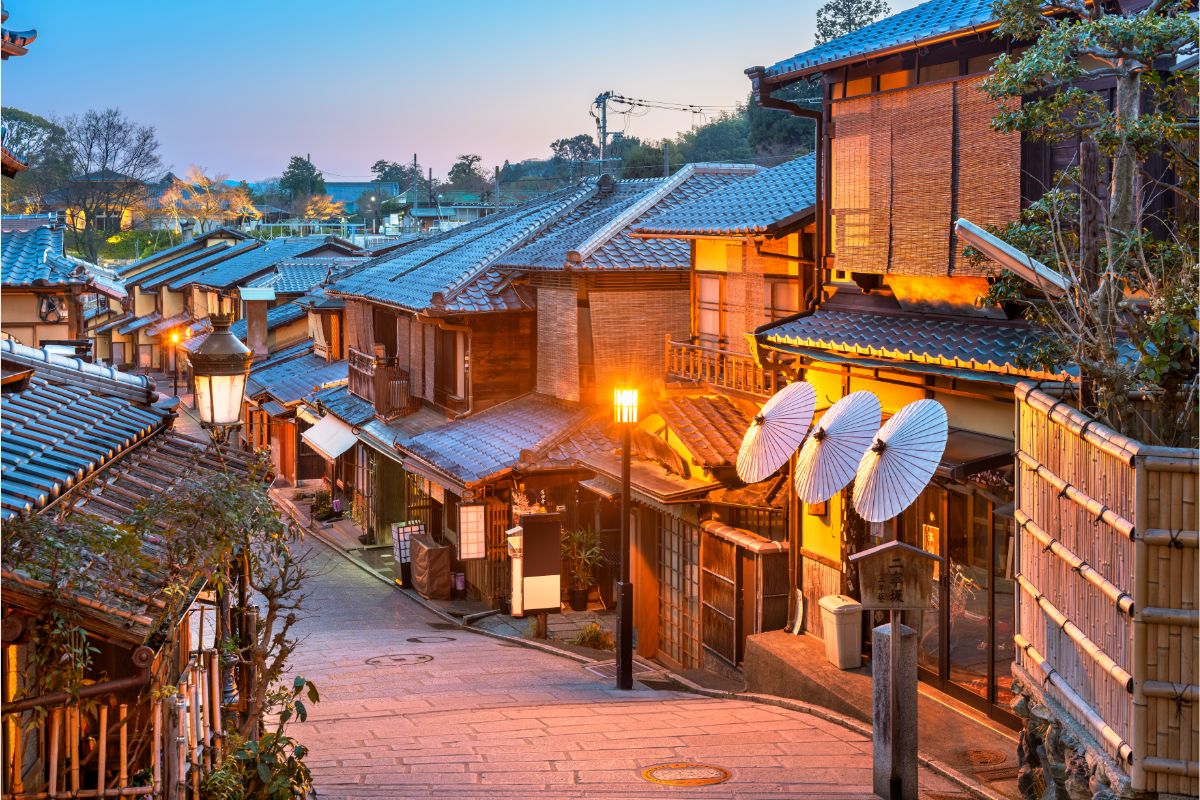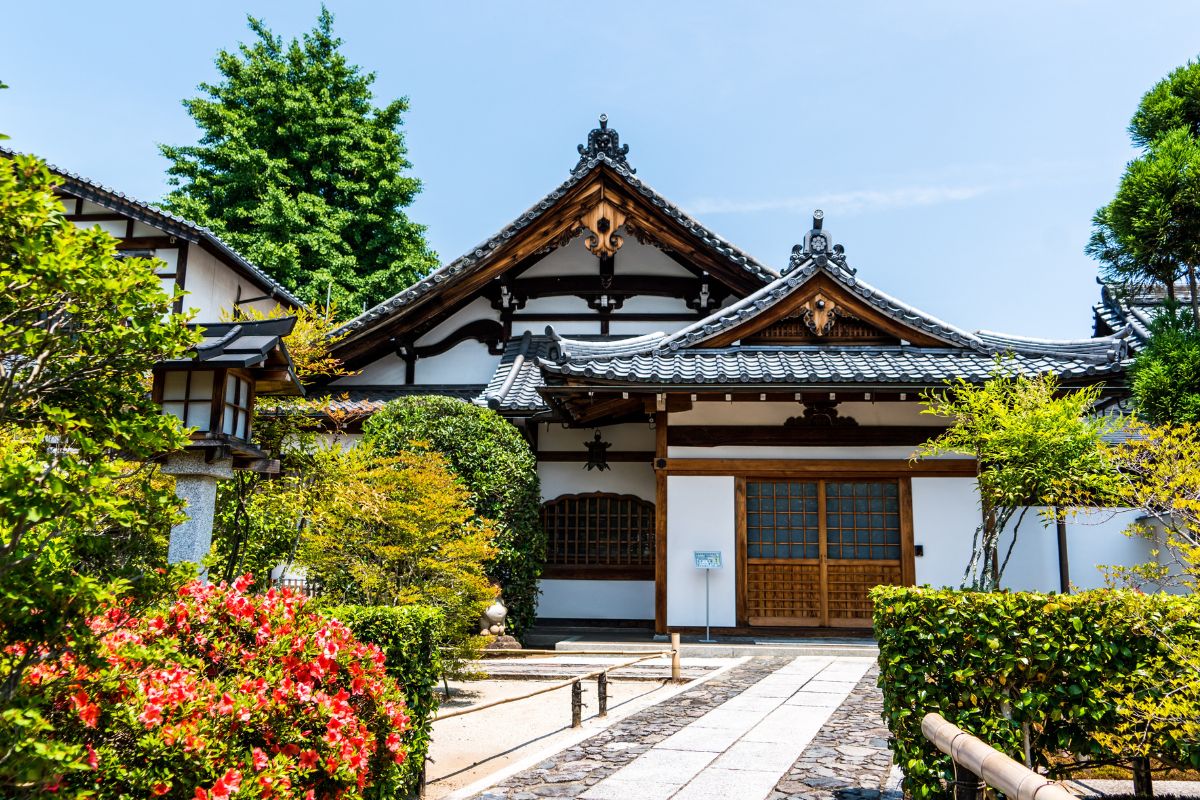Japan is widely known as one of the cleanest countries in the world. Environmental issues aside, the general cleanliness of streets, homes, and public spaces is something that western countries might envy.
You’re not likely to see people throwing trash on the ground, and there are even laws and fines for this very thing.
You might be wondering why this is – how come Japan can keep their streets and public places so clean?

In this article, we’re going to look at the main reasons why Japan is a clean country.
There are lots of different reasons including common practices, cultural differences, and laws in place that can explain this.
We’ve also made sure to include a short Frequently Asked Questions section to give answers to some of the most common questions around this issue.
Trash Cans
One of the strangest things you’ll notice about Japan if you ever go there is the distinct lack of trash cans out on the street. This is a big difference from western cities.
Comparing Tokyo and New York is a big difference. The lack of trash cans works in two ways. Firstly, it means that there are no overflowing trash cans anywhere, dissuading people from littering.
Secondly, it means that there is a cultural expectation to clean up after yourself.
Whilst this might seem counterintuitive to somebody outside of the culture, the lack of trash cans is all about taking personal responsibility for your trash.
Often, if people have trash to throw away when walking around – say a coffee cup or a candy wrapper, they will either keep it on themselves or place it in their bag until they get home.
Homes And Business Accountability
Japan also has a distinct lack of public cleaners. Instead, people are often expected to clean in and around their homes. This means you’re much more likely to see people sweeping/clearing the street outside their homes.
Whilst you may think this can’t be possible, if each person on a street does a small bit of cleaning, it’s quite easy to keep everything clear. It’s the same with businesses.
Education
Children in Japanese schools are more often than not expected to clean up after themselves.
This is something that the majority of schools around the world instill, but it’s particularly prevalent in Japanese schools where students are well behaved and there are big standards for how they conduct themselves.
In Japan, there is a tradition where students help clean their school at the end of the day. Children from the ages of six all help together to make their school a more organized and tidy place.
It is usually only for 15 minutes or so, but it works remarkably well at keeping everything together. This practice has been created so that students learn personal responsibility and take accountability for the mess they make.
You can probably imagine how this practice allows children to grow up believing that cleaning up after themselves is an integral part of life.
When they become adults, they are more often than not conscious of mess and continue to practice for the rest of their lives.
Communal Cleaning
One thing you might find if you live in Japan is that neighborhoods often schedule community cleaning projects. This basically involves people waking up before work and all pitching together to fix up your neighborhood a little.
This is an incredible practice that not only means areas get cleaned up but is also a small thing that helps communities meet and speak together.
Now, these projects aren’t a legal requirement, but they are semi-obligatory, especially if you want to be part of the community of wherever you live.
You’re more likely to find this in smaller towns or close-knit communities, as cities are much busier and have less sense of communal spirit.
Littering Taboo
Japan is a much more collective culture than others in the world, meaning that people are more likely to take individual responsibility for things and that people believe more in a collective whole rather than individuality.
This has both positive and negative effects on people’s lives, but when it comes to public spaces and responsibility, it means everyone does their part and there is social pressure if you step out of line.
This means that if you are going to litter publicly, people will make it known to you that it’s not good behavior.
As mentioned in the section above, staying clean is something that is instilled within Japanese society from a young age, and if you are to step outside of that you’re likely to get some disapproving stares or even worse.
Religious Significance
One reason that Japan is so clean is actually to do with the most dominant religion in the country.
Shinto has cleaning rituals baked into its very fabric, and anyone who comes from this kind of religious background is going to have more of an incentive to lead like that throughout their life.
It’s important to note here that not all people in Japan are religious. Shinto was once the state religion of Japan, with Buddhism as a close second, but many people in the modern world are atheists.
However, religion affects culture, and cleaning rituals have been a part of Japanese society for a very long time.
Final Thoughts
So there you have it! Japan is a very clean country, with its cities being at the top end of some of the most organized and clean in the world.
If you’re thinking about traveling to Japan, or moving there to live, you’re going to want to be very conscious of your cleaning habits, to make sure that you conform to the conventional standards.
We hope that this article has given you some insight into why Japan is so clean and that you now know everything you need to!
- 16 Best Websites To Watch Japanese Movies With English Subtitles - May 11, 2023
- Is ZIPAIR The Best Airline For Traveling To Japan? - May 11, 2023
- Ryu Murakami Vs Haruki Murakami – Which One Should You Read? - May 11, 2023








